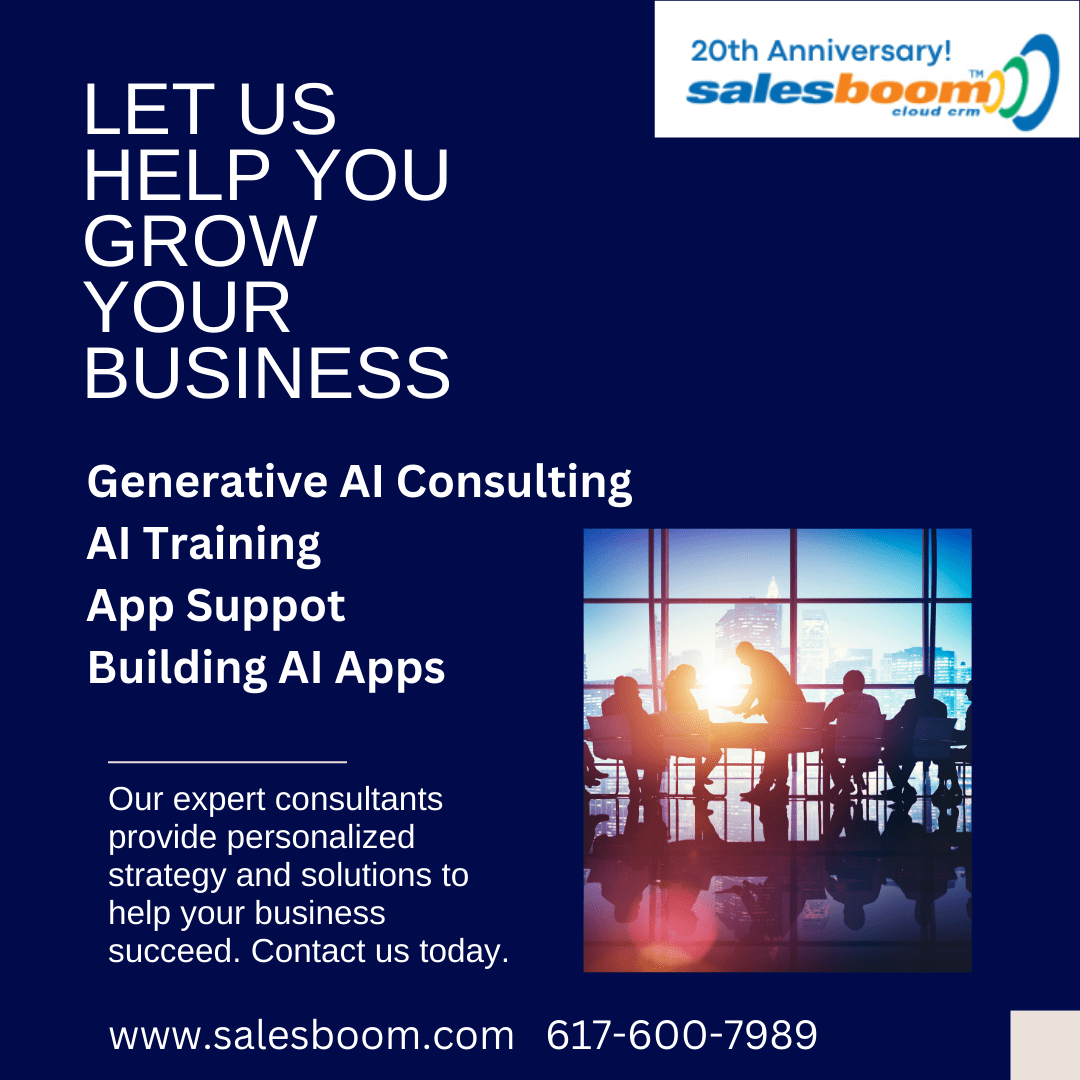How to Leverage CRM for Marketing Operations - 20 Top Tips
Content:
- Introduction
- Centralized Customer Information
- Segmentation
- Improved Customer Understanding
- Campaign Management
- Lead Management
- Email Marketing Integration
- Social Media Integration
- Automated Workflows
- Predictive Analytics
- Personalization
- Event Management
- ROI Measurement
- Customer Retention
- Cross-sell and Upsell Opportunities
- Real-Time Marketing
- Enhanced Communication
- Mobile Marketing
- Collaboration Across Departments
- Compliance and Data Security
- Customer Journeys
Leading Marketing Operations leverage Customer Relationship Management (CRM) systems daily. CRMs have become indispensable tools for Marketing.
CRM goes beyond managing customer interactions; it's a powerhouse that revolutionizes how businesses approach their marketing strategies.
The integration of CRM in marketing operations offers multifaceted benefits, driving efficiency, deepening customer insights, and fostering enhanced engagement strategies.

In the data-driven realm of modern marketing, a robust CRM system is not just a helpful tool; it's an essential component for any marketer seeking to excel in a competitive business environment.
By leveraging the capabilities of CRM, marketers can unlock new levels of precision, personalization, and performance in their campaigns, laying the groundwork for sustained business success and customer satisfaction.

Let's delve into the top 20 reasons why CRM is crucial for enhancing marketing operations.
-
Centralized Customer Information
CRM's ability to centralize customer data is a game-changer for marketers. With all customer-related information stored in one place – from contact details, preferences, interaction history, to purchase records – marketing teams can easily access and analyze this data to gain valuable insights. This centralization eliminates data silos, ensures everyone is working with the same information, and facilitates a 360-degree view of the customer, essential for creating more tailored and impactful marketing strategies.
-
Segmentation
Effective segmentation is vital for targeted marketing, and CRM excels at this. By classifying customers into distinct groups based on various criteria like age, gender, buying habits, or engagement levels, marketers can create more focused and relevant campaigns. This targeted approach not only enhances customer engagement but also improves the overall effectiveness of marketing efforts by ensuring the right messages reach the right people.
-
Improved Customer Understanding
CRMs offer powerful analytics tools that delve deep into customer data, revealing patterns and trends that might not be immediately apparent. This level of insight helps marketers understand not just who their customers are, but also their behaviors, needs, and motivations. With a better understanding of their audience, marketers can craft messages and offers that resonate more effectively, driving higher conversion rates and customer loyalty.
-
Campaign Management
CRM systems streamline the entire lifecycle of marketing campaigns. From conceptualization and target audience selection to execution and performance tracking, every aspect can be managed within the CRM. This centralized management ensures that campaigns are cohesive, consistent, and in line with overall marketing goals. Plus, the ability to track and analyze results helps in fine-tuning strategies for future campaigns.
-
Lead Management
CRM's lead management capabilities are integral to converting prospects into customers. By tracking every interaction with potential leads – whether through emails, phone calls, or social media – and scoring them based on their behaviors and engagement levels, CRM helps in identifying which leads are ready for a sale and which need more nurturing. This targeted approach not only streamlines the sales funnel but also increases the likelihood of conversion.
-
Email Marketing Integration
Integrating email marketing with CRM creates a powerful synergy. By leveraging customer data within the CRM, email marketing campaigns can become highly personalized and targeted. This integration also allows for the tracking and analysis of email campaign performance directly within the CRM, helping marketers understand which messages resonate best and optimize accordingly.
-
Social Media Integration
Social media integration in CRM tools empowers marketers to track brand mentions, engage with customers, and analyze social campaign performances alongside other marketing efforts. This integration provides a comprehensive view of how social media efforts contribute to overall marketing goals and customer engagement strategies.
-
Automated Workflows
Automation is one of the biggest benefits of a CRM. Automating routine tasks like follow-up emails, lead qualification, and social media postings not only saves valuable time but also increases efficiency and reduces human errors. Marketers can focus more on strategic tasks while the CRM system takes care of the operational details.
-
Predictive Analytics
Advanced CRM systems equipped with predictive analytics can forecast future buying behaviors and trends, enabling marketers to anticipate customer needs and preferences. This proactive approach to marketing ensures that businesses stay ahead of the curve, adapting their strategies to meet future demand and customer expectations.
-
Personalization
Personalization is key to effective marketing, and CRM is a potent tool in achieving this. By using customer data to tailor messages and offers, businesses can engage with their customers on a more personal and meaningful level. This personalization can lead to increased customer satisfaction, loyalty, and ultimately, sales.
-
Event Management
For businesses that frequently organize events, CRM’s event management features can be invaluable. From managing invitations and registrations to post-event follow-up, all aspects of event management can be handled within the CRM. This not only streamlines the process but also helps in tracking the effectiveness of events as part of the overall marketing strategy.
-
ROI Measurement
One of the most significant advantages of using a CRM for marketing is the ability to measure the ROI of campaigns. By tracking the journey from initial contact to final sale, CRMs help marketers understand which campaigns are performing well, where funds are best spent, and how marketing efforts are contributing to the bottom line.
-
Customer Retention
CRMs are not just about acquiring new customers; they play a crucial role in retaining existing ones. By analyzing past purchase behavior and engagement, CRMs help in creating strategies for customer retention, such as personalized offers or loyalty programs, that increase the likelihood of repeat business.
-
Cross-sell and Upsell Opportunities
With detailed insights into each customer’s purchase history and preferences, CRM enables marketers to identify potential cross-sell and upsell opportunities. This not only helps in maximizing revenue from existing customers but also enhances the customer experience by offering products or services that genuinely meet their needs.
-
Real-Time Marketing
In today’s fast-paced market, the ability to make quick decisions is vital. CRM systems provide real-time data that marketers can use to adapt their strategies on the fly. Whether responding to a competitor’s campaign or capitalizing on a trending topic, CRM ensures that marketers have the most current data at their fingertips.
-
Enhanced Communication
CRM systems store all communications with customers, providing a complete historical view of interactions. This information is crucial for ensuring that communication is consistent, relevant, and timely. Having this comprehensive record helps in personalizing customer interactions and building stronger relationships.
-
Mobile Marketing
With the growing prevalence of smartphones, mobile marketing has become a key channel. Many CRM systems offer mobile functionality, enabling marketers to manage campaigns, interact with customers, and access data on the go, ensuring they’re always connected and responsive.
-
Collaboration Across Departments
CRMs facilitate better collaboration between marketing and other departments like sales and customer service. This inter-departmental synergy ensures a unified approach to customer management, resulting in a consistent and coordinated customer experience across all touchpoints.
-
Compliance and Data Security
In the era of data privacy laws like GDPR, ensuring the secure and compliant handling of customer data is crucial. CRM systems help manage customer data responsibly, maintaining trust and integrity in customer relationships, and ensuring legal compliance.
-
Customer Journeys
Understanding the customer journey – from awareness to purchase and beyond – is essential for effective marketing. CRMs can map out these journeys, providing insights into various touchpoints and experiences. This understanding is key to optimizing marketing strategies and enhancing the overall customer experience.


Utilizing a CRM system for marketing operations can significantly boost efficiency, enhance customer understanding, and drive better business results.
In an era where data-driven marketing decisions reign supreme, a CRM system is not just a tool but a strategic asset in crafting winning marketing strategies.
By leveraging the functionalities of a CRM, businesses can unlock the full potential of their marketing efforts and establish stronger, more profitable customer relationships.